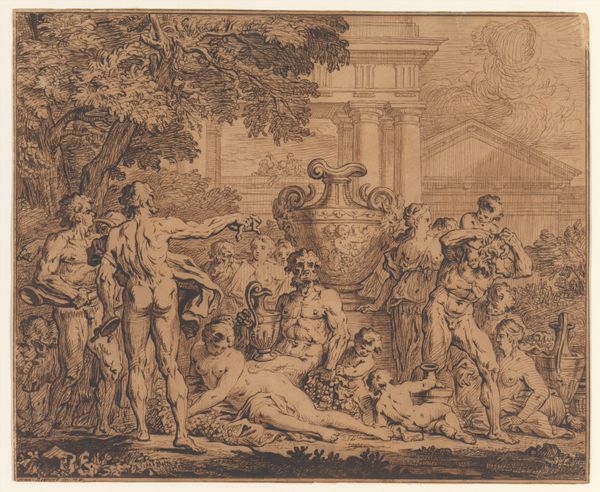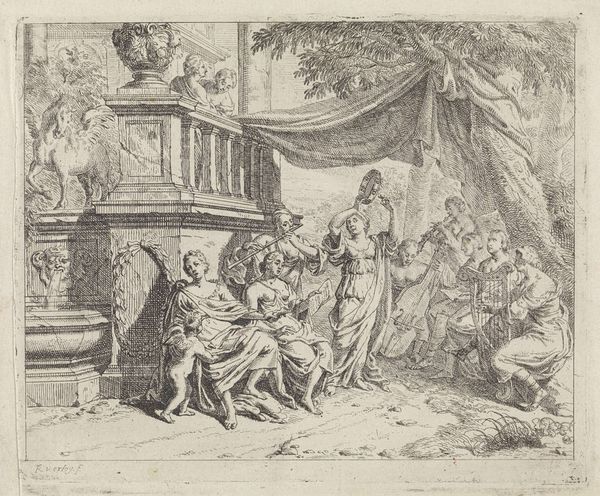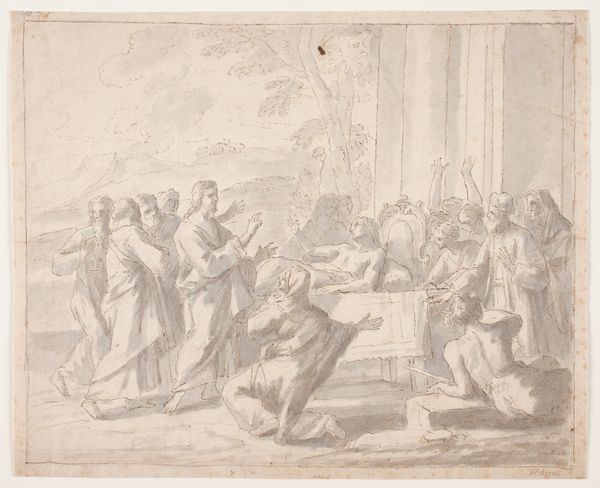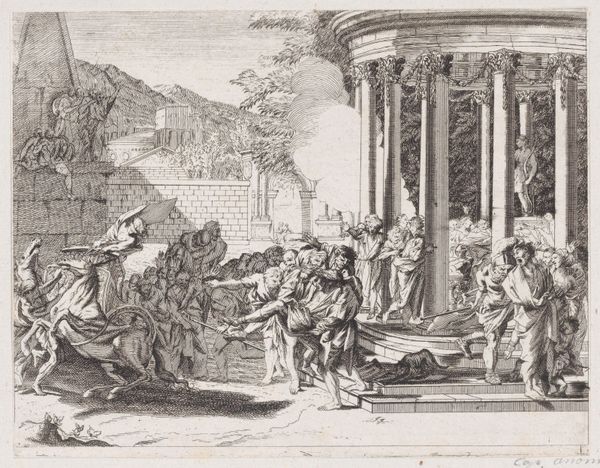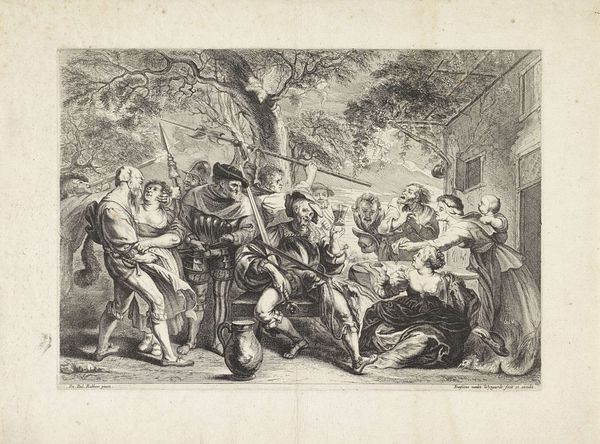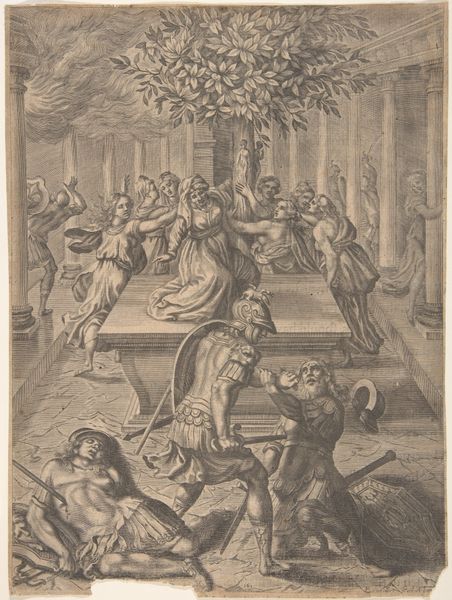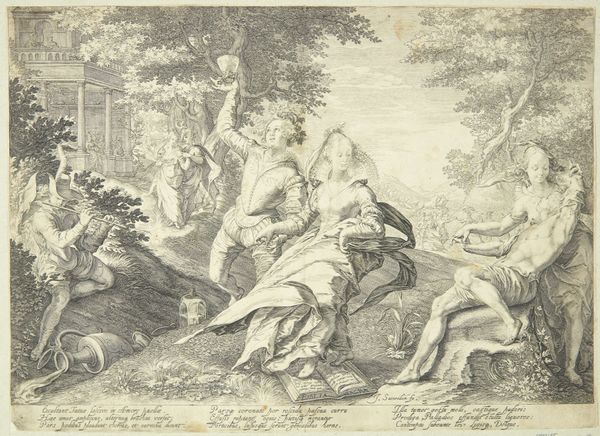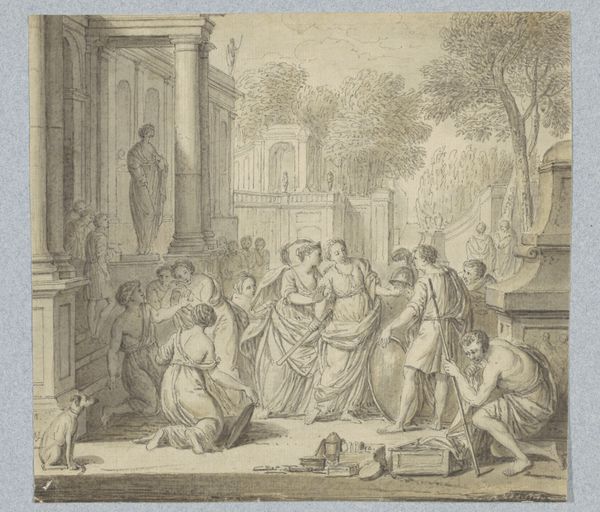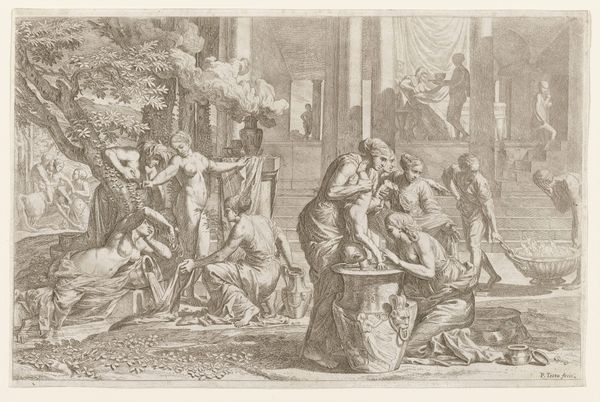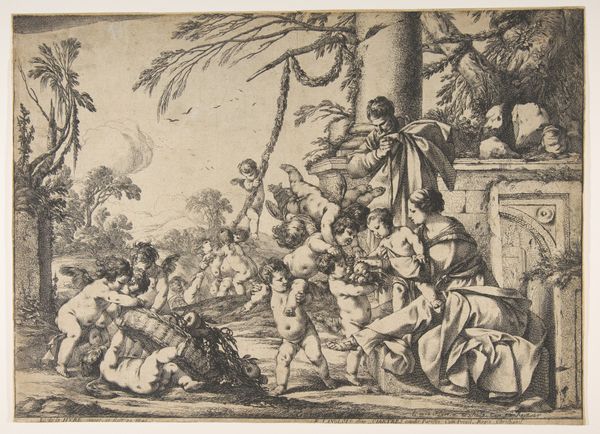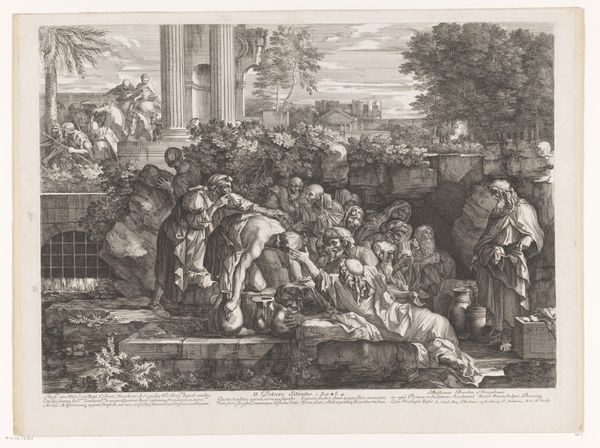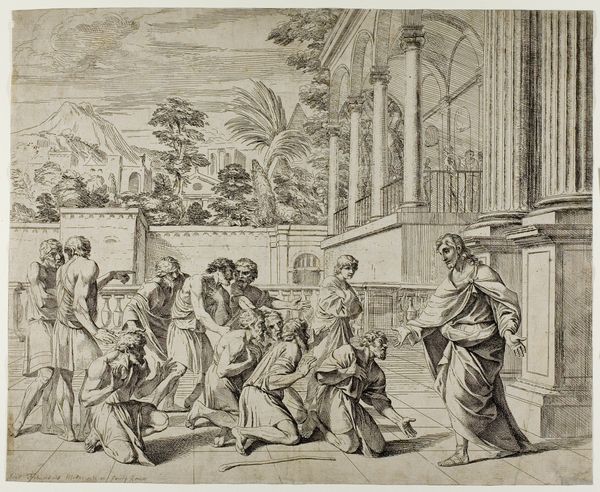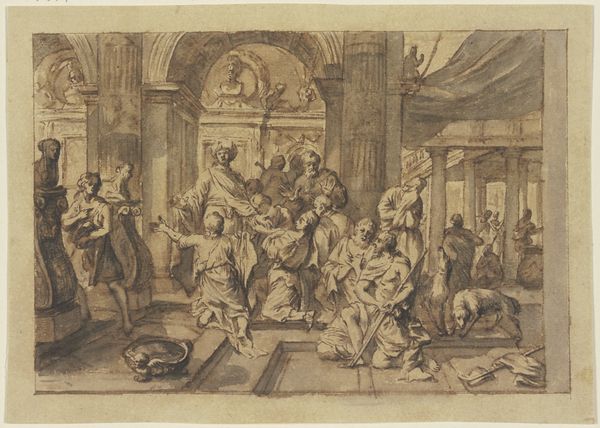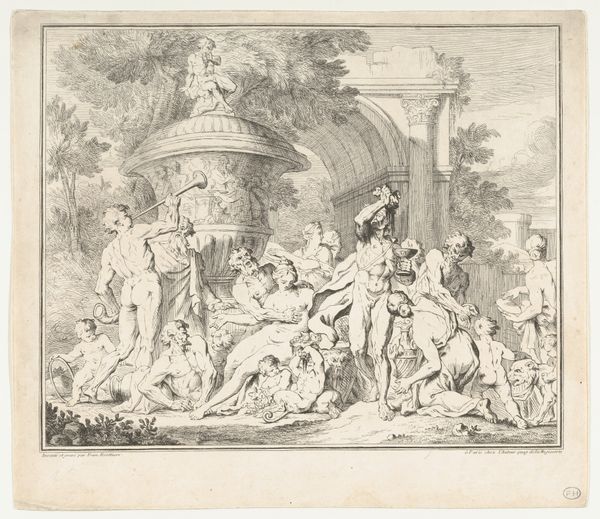
drawing, print, etching, engraving
#
drawing
#
neoclacissism
#
allegory
# print
#
etching
#
landscape
#
pencil drawing
#
history-painting
#
academic-art
#
engraving
Dimensions: Sheet: 11 in. × 16 15/16 in. (27.9 × 43 cm)
Copyright: Public Domain
Editor: So, this is "Sacrifice to Diana," an etching and engraving by Francesco Bartolozzi, created around 1776. It’s incredibly detailed, almost academic in its precision, but I’m immediately struck by the underlying implications of ritualistic sacrifice. It feels a bit…unsettling. What do you see in this piece? Curator: The 'unsettling' aspect you pinpoint is key. Looking at this image, consider its socio-political context. It emerges during a period grappling with Enlightenment ideals clashing with older hierarchical systems. What does it mean to depict such a scene, with its clear power dynamics and the ritualized taking of life, as an "allegory?" Editor: I suppose it’s presenting an idealized, classical past. I see Neoclassical elements, certainly, but I wonder if the emphasis on sacrifice and ritual reaffirms existing power structures, even if veiled in beauty. Curator: Precisely! Think about whose stories get told and who is silenced. Who benefits from this “beautiful” depiction of sacrifice? Is Diana being worshipped, or are more earthly powers being reinforced through her image? Consider the place of women within Neoclassicism. Were they being venerated or simply being assigned roles? Editor: It’s almost as if the act of creating a historical painting becomes a political act in itself, solidifying certain views, isn't it? The composition itself draws my eyes into a sort of constructed perspective; there's a lot that has been carefully placed and arranged here. Curator: Exactly! And that calculated arrangement isn't just about aesthetics; it's about communicating a specific message, consciously or unconsciously. It speaks to the intersectional issues inherent within art. We must address how artistic representation both reflects and shapes societal power dynamics, from the Enlightenment Era into our contemporary age. Editor: I never considered the picture within the picture...it's fascinating how much depth there is beneath the surface! Curator: Indeed. Every stroke, every choice contributes to a complex tapestry of meaning.
Comments
No comments
Be the first to comment and join the conversation on the ultimate creative platform.
